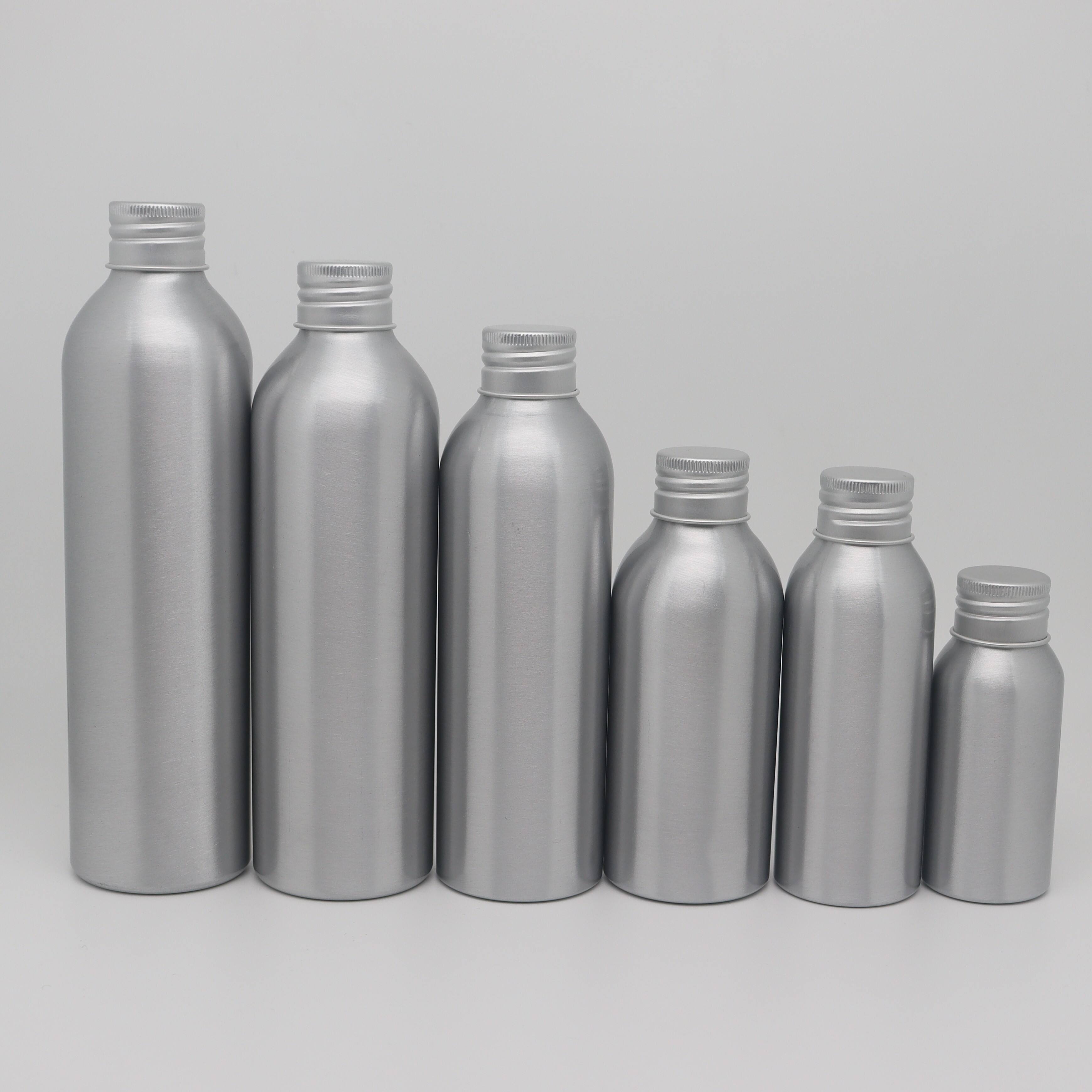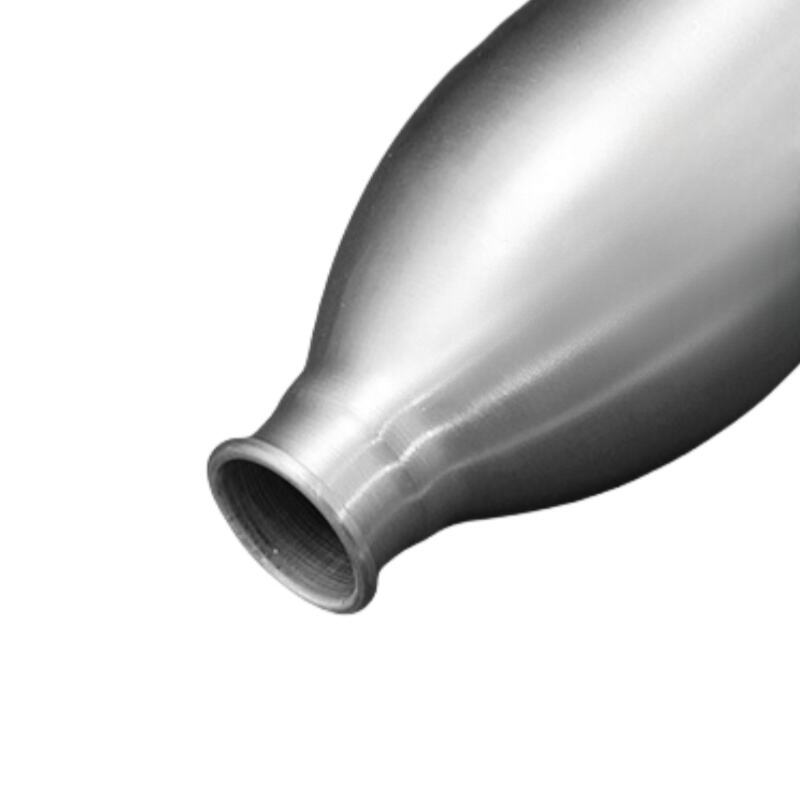Eco-Conscious Packaging: Why Aluminum Bottles Lead the Sustainability Shift
Introduction: The Urgency for Sustainable Packaging
As climate change and environmental degradation continue to intensify, the role of product packaging has become a central concern for consumers and industries alike. Among the many alternatives to conventional plastic packaging, aluminum bottles have gained significant attention for their environmental advantages. From beverage containers to personal care products and household cleaners, more companies are turning to this material as a greener solution. But what makes aluminum such an environmentally preferable choice over plastic?
This article explores the environmental benefits of aluminum bottles in comparison to plastic containers, covering aspects like recyclability, carbon footprint, energy use, and pollution. The analysis also includes how consumer habits and corporate sustainability commitments are accelerating the shift toward aluminum-based packaging solutions.
Superior Recyclability and Reuse Potential
High Recycling Rate and Material Recovery
One of the most significant environmental benefits of aluminum bottles is their high recyclability. Unlike plastic, which often ends up in landfills or oceans due to low recovery rates, aluminum boasts one of the highest recycling rates among packaging materials. In many countries, over 70% of aluminum containers are successfully recycled, and the number continues to rise.
Unlike plastic, aluminum can be recycled indefinitely without losing its structural integrity or purity. This allows it to enter a closed-loop recycling system where bottles are melted down and reformed into new bottles repeatedly. This process helps conserve raw materials, especially bauxite ore, and significantly reduces waste generation.
Lower Contamination in Waste Streams
Recycled plastic is prone to degradation and contamination. Mixed polymer types, color variations, and residual chemicals can compromise the quality of recycled plastic, making it suitable only for limited use. On the other hand, aluminum is relatively immune to such contamination. Its recycling process involves high-temperature smelting that eliminates impurities, ensuring consistent material quality for reuse. This gives aluminum bottles a clear edge in maintaining the integrity of recycled materials across multiple cycles.
Reduced Carbon Footprint in the Long Run
Energy Savings in Recycling
Producing virgin aluminum from bauxite is energy-intensive. However, the energy required to recycle aluminum is just 5% of that needed to produce it from raw materials. As more industries invest in closed-loop systems and recycled content, the lifecycle emissions of aluminum bottles continue to decrease. Over time, aluminum packaging becomes significantly less carbon-intensive than plastic, which generally requires petroleum-based raw materials and often cannot be recycled more than once or twice.
Transportation Efficiency
Though heavier than plastic, aluminum offers some advantages in transportation, particularly due to its durability and protective strength. Aluminum bottles reduce the need for secondary packaging or protective materials during transit. Their resistance to punctures and crushing also reduces the risk of damaged goods, minimizing returns and waste — both of which carry carbon costs.
Eliminating Plastic Pollution
No Microplastics or Leachates
Plastic bottles break down into microplastics over time, contaminating soil, water systems, and even entering the human food chain. These microplastics persist in the environment for hundreds of years, posing long-term ecological and health risks. Aluminum bottles, however, do not degrade into harmful particles. Their inert nature ensures that they don’t contribute to this form of pollution.
Moreover, plastic containers often contain additives like BPA (bisphenol A) or phthalates that may leach into the product contents. Aluminum bottles, particularly when lined with BPA-free coatings, avoid this issue entirely, making them safer for both the environment and human health.
Marine and Land Pollution Reduction
Globally, an estimated 8 million metric tons of plastic enter the oceans each year, forming massive garbage patches and threatening marine ecosystems. Since aluminum is more likely to be recycled and less likely to be discarded, its use helps curb this trend. Even when improperly disposed of, aluminum items are often collected for scrap due to their resale value, preventing them from ending up in natural environments.

Supporting a Circular Economy
Infinite Recyclability as a Circular Asset
The concept of a circular economy emphasizes keeping resources in use for as long as possible. Aluminum bottles fit seamlessly into this model. Each recycled aluminum bottle displaces the need for new raw materials and minimizes waste. In contrast, most plastic packaging is still designed for single use, with only a fraction being effectively recycled.
Aluminum’s capacity for perpetual reuse means companies can commit to long-term sustainability goals with measurable results. Brands can showcase their use of recycled aluminum content to demonstrate eco-consciousness, which resonates with environmentally aware consumers.
Corporate Responsibility and Brand Image
Many global brands have started to adopt aluminum packaging as part of their corporate sustainability pledges. Beverage giants, cosmetics companies, and cleaning product manufacturers have shifted to aluminum to meet carbon neutrality targets and reduce plastic dependency. These transitions are often marketed as premium, sustainable upgrades — a message that appeals to modern, eco-minded consumers.
Adaptability and Lifecycle Durability
Stronger Material for Longer Use
Aluminum bottles are inherently more durable than plastic. They resist cracks, warping, and chemical degradation, allowing for reuse in multiple contexts. Whether used for carrying beverages, shampoos, or household cleaners, aluminum containers retain their form and usability over time. This makes them ideal for refillable product systems, another hallmark of sustainable consumption.
Thermal and Light Resistance
Another often-overlooked benefit of aluminum bottles is their resistance to light and temperature changes. Unlike plastic, which can degrade under UV light or leach chemicals at high temperatures, aluminum provides excellent thermal insulation and product protection. This quality extends the shelf life of contents and reduces spoilage, minimizing product loss — a hidden contributor to waste in packaging lifecycles.
Future Outlook: Will Aluminum Overtake Plastic?
The future of packaging will be shaped by regulations, innovation, and consumer demand. With legislation increasingly targeting single-use plastics and industries investing in more sustainable solutions, aluminum bottles are poised to become even more prominent. Their high recovery rate, lifecycle efficiency, and pollution-free profile make them an appealing choice across multiple sectors.
However, scalability challenges remain. Aluminum production still carries environmental costs if not properly managed, and widespread transition requires infrastructure support for collection and recycling. That said, as energy grids decarbonize and recycling systems improve, aluminum’s environmental impact will continue to diminish.
FAQ
Are aluminum bottles better than plastic for the environment?
Yes, aluminum bottles are better than plastic in terms of recyclability, reuse, and reduced pollution. They can be recycled indefinitely and typically have a lower environmental footprint over time.
Can aluminum bottles be used for all products?
Aluminum bottles are versatile and used for beverages, personal care items, cleaning agents, and more. With appropriate inner linings, they are safe for a wide range of liquids and solids.
How energy-intensive is aluminum production?
Producing aluminum from raw materials is energy-intensive, but recycling aluminum saves up to 95% of the energy, making it one of the most efficient materials when used in a closed-loop system.
Are aluminum bottles more expensive than plastic?
Initially, aluminum bottles can be more expensive. However, their durability, reusability, and recyclability offer long-term savings and environmental benefits that outweigh the upfront cost.
Table of Contents
- Eco-Conscious Packaging: Why Aluminum Bottles Lead the Sustainability Shift
- Superior Recyclability and Reuse Potential
- Reduced Carbon Footprint in the Long Run
- Eliminating Plastic Pollution
- Supporting a Circular Economy
- Adaptability and Lifecycle Durability
- Future Outlook: Will Aluminum Overtake Plastic?
- FAQ






